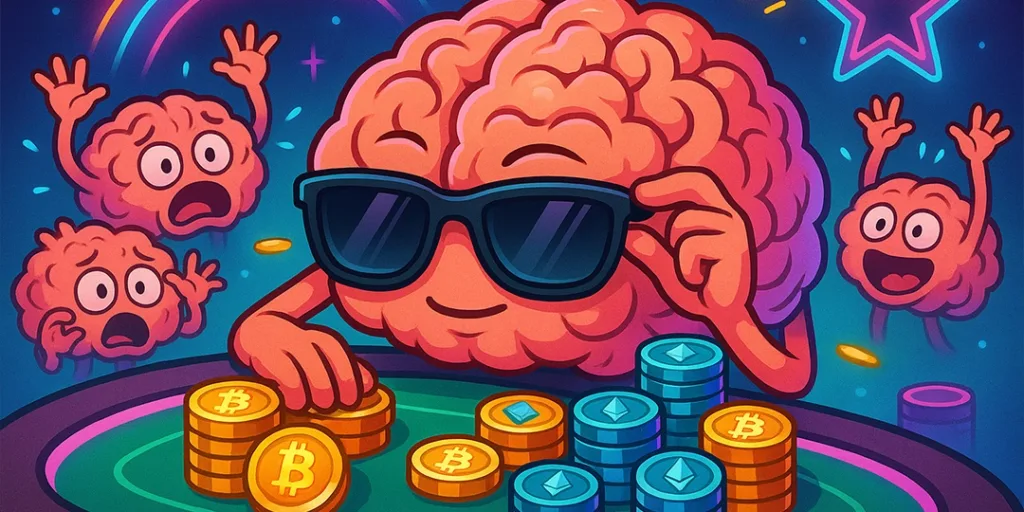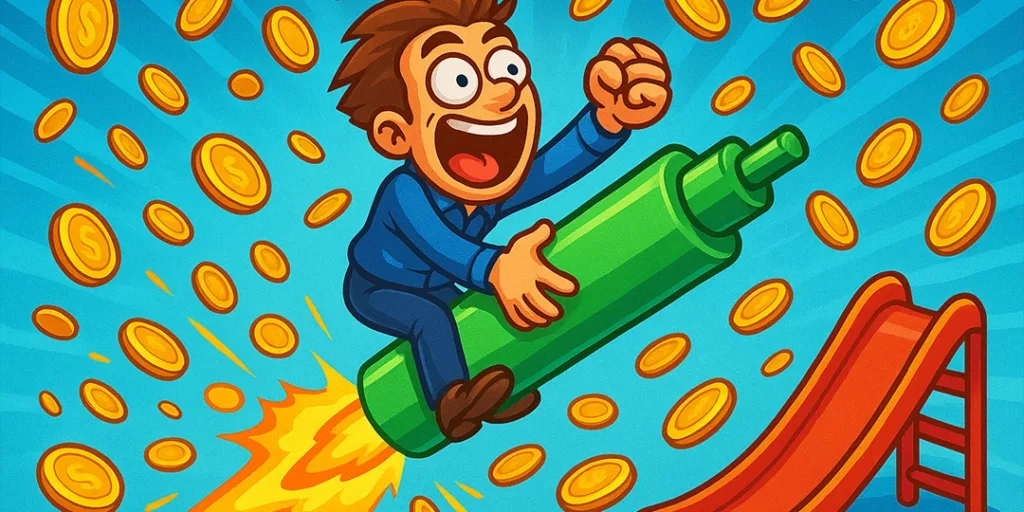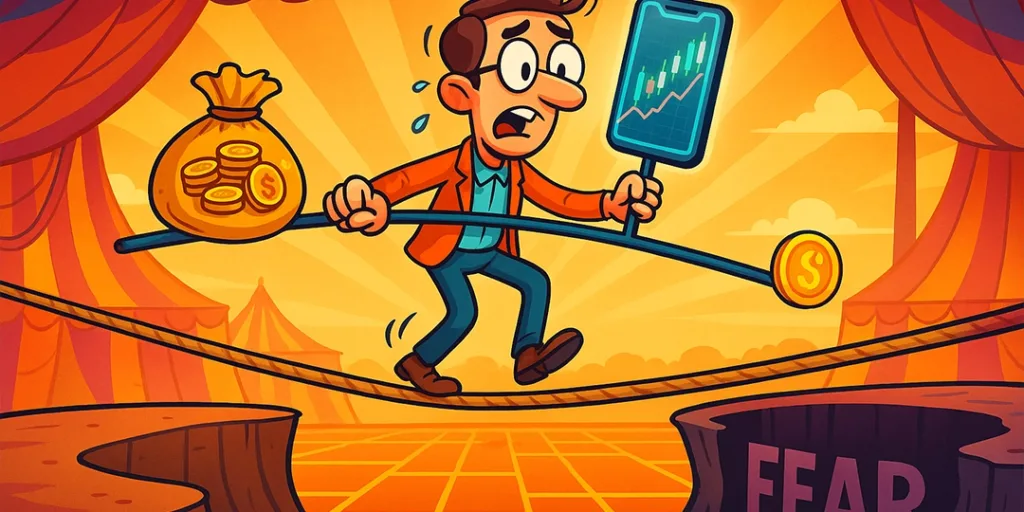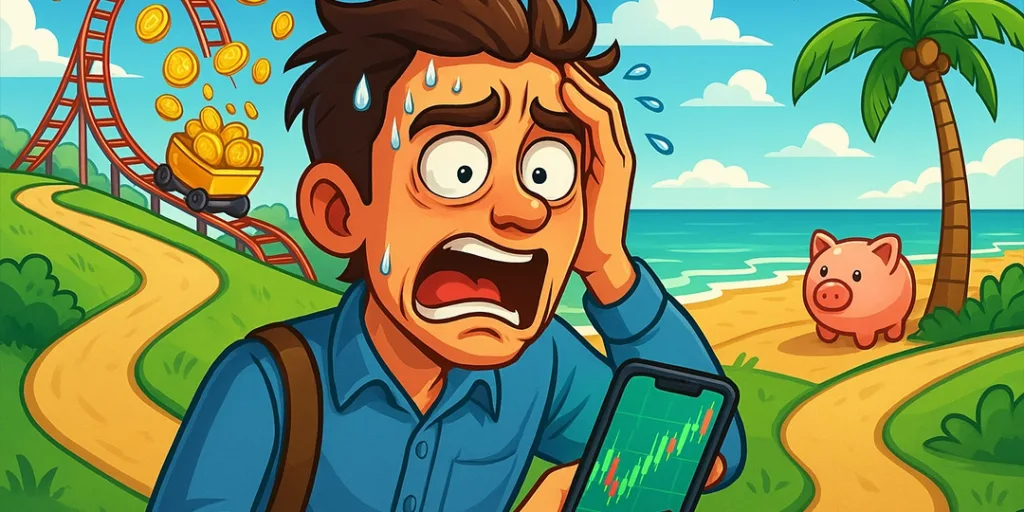The stage where nerves meet numbers
Let’s be honest, crypto trading is not for the faint-hearted. One moment, your portfolio looks like a jackpot; the next, it looks like someone hit the “drain” button. This rollercoaster brings us face-to-face with the oldest question in finance: risk vs reward. Do you risk your hard-earned cash for the promise of juicy gains, or do you play it safe and miss out on that moonshot?
The truth is, trading isn’t just about numbers on a glowing screen. It’s a psychological tug-of-war. Behind every click of “buy” or “sell” is a cocktail of hope, fear, greed, and the occasional regret-fueled pizza binge.

How our brains trick us
Traders like to think they’re rational, but really, are they? We’re walking bundles of bias. Ever heard of loss aversion? That’s the mental quirk where losing $100 feels twice as painful as gaining $100 feels good. It’s why people hold sinking coins far longer than they should, whispering, “It’ll bounce back, right?”
Then there’s confirmation bias, the habit of only seeking news that supports what you already believe. If you’re convinced your coin will 10x, you’ll scroll past every red flag and cling to that one random tweet predicting a rocket emoji future.
These quirks make the game of risk vs reward even messier. Instead of calm, calculated decisions, we get fear-driven panic sells and greed-fueled moon chases.

The gambler’s high: Risk vs reward?
If you’ve ever felt the rush of placing a risky trade, you know it’s not that different from rolling dice at a casino. The dopamine hit is real. Every green candle feels like a win, every red one like a personal attack. And just like in Vegas, traders often chase losses, convinced that the “next trade” will fix everything.
But here’s the kicker: in crypto, the house doesn’t always win; however, you can. The trick is to understand the psychology at play and not let your inner gambler steer the ship.
Stories from the trenches
Ask any seasoned trader and you’ll hear the same stories. The one about the guy who sold too early and watched the coin soar another 500%. Or the tale of someone who refused to sell at the peak and saw their “dream Lambo” turn back into a bicycle. These aren’t just sob stories; they’re reminders of the delicate balance of risk vs reward.
Trading is less about predicting the future and more about managing yourself in the present. Knowing when to hold, when to fold, and when to walk away for a coffee break might just be the best strategy you’ll ever learn.

How to play smarter
Here’s the part no one wants to hear: there’s no magic formula. But there are a few human-friendly rules:
- Set limits before emotions hit: Decide how much you’re willing to lose (and gain) before the trade.
- Respect stop-losses: They’re like seatbelts—you’ll be glad you had them in a crash.
- Take profits: Don’t wait for perfection; even small wins stack up.
- Remember life outside the charts: Walk, sleep, and laugh—your brain makes better calls when it isn’t fried.
Balancing risk vs reward is more about discipline than genius. The market doesn’t care about your feelings, but your future self will thank you for being rational.
How do we justify the risk vs reward?
At its core, crypto trading is a mental game dressed up as numbers and charts. Every trade is a decision between risk and reward, and every trader battles the same voices of fear, greed, and hope. The winners aren’t necessarily the smartest—they’re often just the calmest.
So the next time your favorite coin looks like it’s “about to moon,” take a breath, check your plan, and remind yourself: trading is a marathon, not a slot machine. And sometimes, the best reward comes from managing the risk you don’t take.





